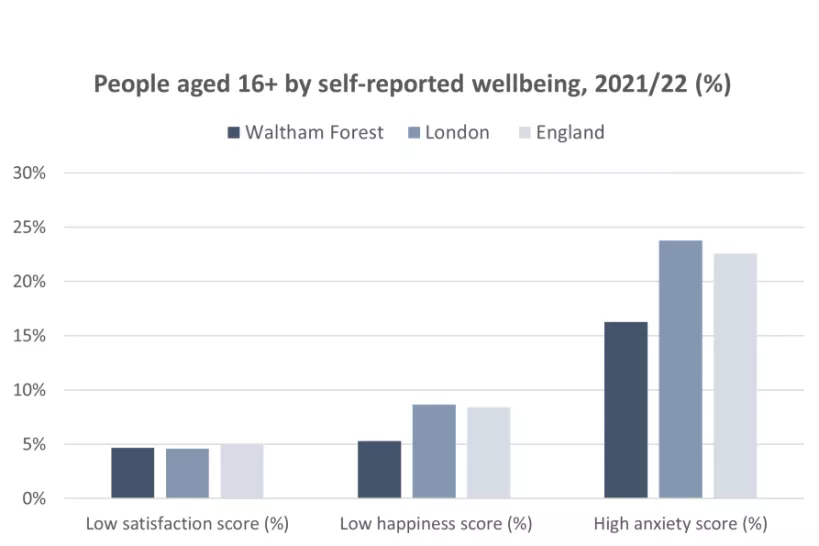Last updated: 31 May 2024
Next review: 1 December 2024
This content is part of the Waltham Forest JSNA. To see other JSNA content, visit the JSNA landing page
Mental health refers to a person's overall sense of well-being, where they recognise their own capabilities, handle everyday pressures effectively, engage in productive work, and actively contribute to their community. Self-reported measures of well-being provide insights into individuals' satisfaction with life, the value they place on their activities, their level of happiness, and their experiences of anxiety. People who have higher levels of well-being generally experience lower rates of illness, faster recovery, and improved physical and mental health in general.
During the 2021 and 2022, the percentage of individuals aged 16 and above who reported a low satisfaction score was similar in Waltham Forest and London, with rates of 4.7% and 4.6% respectively. These rates were slightly lower than the average for England, which stood at 5%. During the same period, 5.3% of the population in Waltham Forest reported a low happiness score, compared to 8.7% in London and 8.4% in England. In Waltham Forest, 16.3% of individuals self-reporting high anxiety scores 2021 between 2022, which was below both the London and England averages, which were 23.8% and 22.6% respectively.

Source: OHID Public Health Outcomes Framework. Data from Annual Population Survey. Date accessed: 27 April 2023.